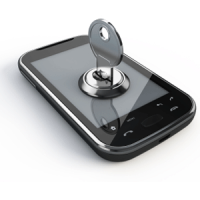October 25, 2017
Security and skills are the top concerns for companies investing in new technology
 Over the next five years, the top three technologies that are set to move from the fringes to the business mainstream are Artificial Intelligence (AI), Blockchain and the Internet of Things, according to CBI research. In the CBI’s new report, Disrupting the future, the UK business group highlights how firms and the government must pave the way for adoption of cutting-edge technologies, tackling the barriers that businesses are facing. The CBI is calling on the Government to establish a joint commission in early 2018 involving, business, employee representatives, academics and a Minister, to examine the impact of Artificial Intelligence on people and jobs, setting out plans for action that will raise productivity, spread prosperity and open up new paths to economic growth.
Over the next five years, the top three technologies that are set to move from the fringes to the business mainstream are Artificial Intelligence (AI), Blockchain and the Internet of Things, according to CBI research. In the CBI’s new report, Disrupting the future, the UK business group highlights how firms and the government must pave the way for adoption of cutting-edge technologies, tackling the barriers that businesses are facing. The CBI is calling on the Government to establish a joint commission in early 2018 involving, business, employee representatives, academics and a Minister, to examine the impact of Artificial Intelligence on people and jobs, setting out plans for action that will raise productivity, spread prosperity and open up new paths to economic growth.







 An overwhelming majority of employees are deliberately seeking out information they are not permitted to access, exposing a major cybersecurity problem among today’s workforce, claims new research published by One Identity. The survey, conducted by Dimensional Research, polled more than 900 IT security professionals on trends and challenges related to managing employee access to corporate data. Among key findings, a remarkable 92 percent of respondents report that employees at their organisations try to access information that is not necessary for their day-to-day work – with nearly one in four (23 percent) admitting this behaviour happens frequently. Most alarmingly, the report indicates that IT security professionals themselves are among the worst offenders of corporate data snooping. One in three respondents admit to having accessed sensitive information that is not necessary for their day-to-day work.
An overwhelming majority of employees are deliberately seeking out information they are not permitted to access, exposing a major cybersecurity problem among today’s workforce, claims new research published by One Identity. The survey, conducted by Dimensional Research, polled more than 900 IT security professionals on trends and challenges related to managing employee access to corporate data. Among key findings, a remarkable 92 percent of respondents report that employees at their organisations try to access information that is not necessary for their day-to-day work – with nearly one in four (23 percent) admitting this behaviour happens frequently. Most alarmingly, the report indicates that IT security professionals themselves are among the worst offenders of corporate data snooping. One in three respondents admit to having accessed sensitive information that is not necessary for their day-to-day work.
 Organisations are taking serious security risks by allowing employees to access workplace IT systems remotely while on their summer holiday, a telecoms company has warned. According to research by the corporate IT and cyber-security arm of Deutsche Telekom, nearly a third of employees (31 percent) use free Wi-Fi hotspots, and nearly a quarter (24 percent) use them for work-related emails and documents. These are a big danger area as they are insecure and easy for hackers to clone (getting access to all email and web traffic, including any work documents and passwords). It also warns that 28 percent of employees email work documents to and from their personal email, despite this creating numerous security problems. Ten percent use free USB charging points at airports and stations; and these ports can be used to transfer viruses and malware to unsuspecting users. The blame cannot solely be placed on the employees though, as just 28 percent of employees have never in their working career had any cyber security training to protect themselves and their employer.
Organisations are taking serious security risks by allowing employees to access workplace IT systems remotely while on their summer holiday, a telecoms company has warned. According to research by the corporate IT and cyber-security arm of Deutsche Telekom, nearly a third of employees (31 percent) use free Wi-Fi hotspots, and nearly a quarter (24 percent) use them for work-related emails and documents. These are a big danger area as they are insecure and easy for hackers to clone (getting access to all email and web traffic, including any work documents and passwords). It also warns that 28 percent of employees email work documents to and from their personal email, despite this creating numerous security problems. Ten percent use free USB charging points at airports and stations; and these ports can be used to transfer viruses and malware to unsuspecting users. The blame cannot solely be placed on the employees though, as just 28 percent of employees have never in their working career had any cyber security training to protect themselves and their employer.






















